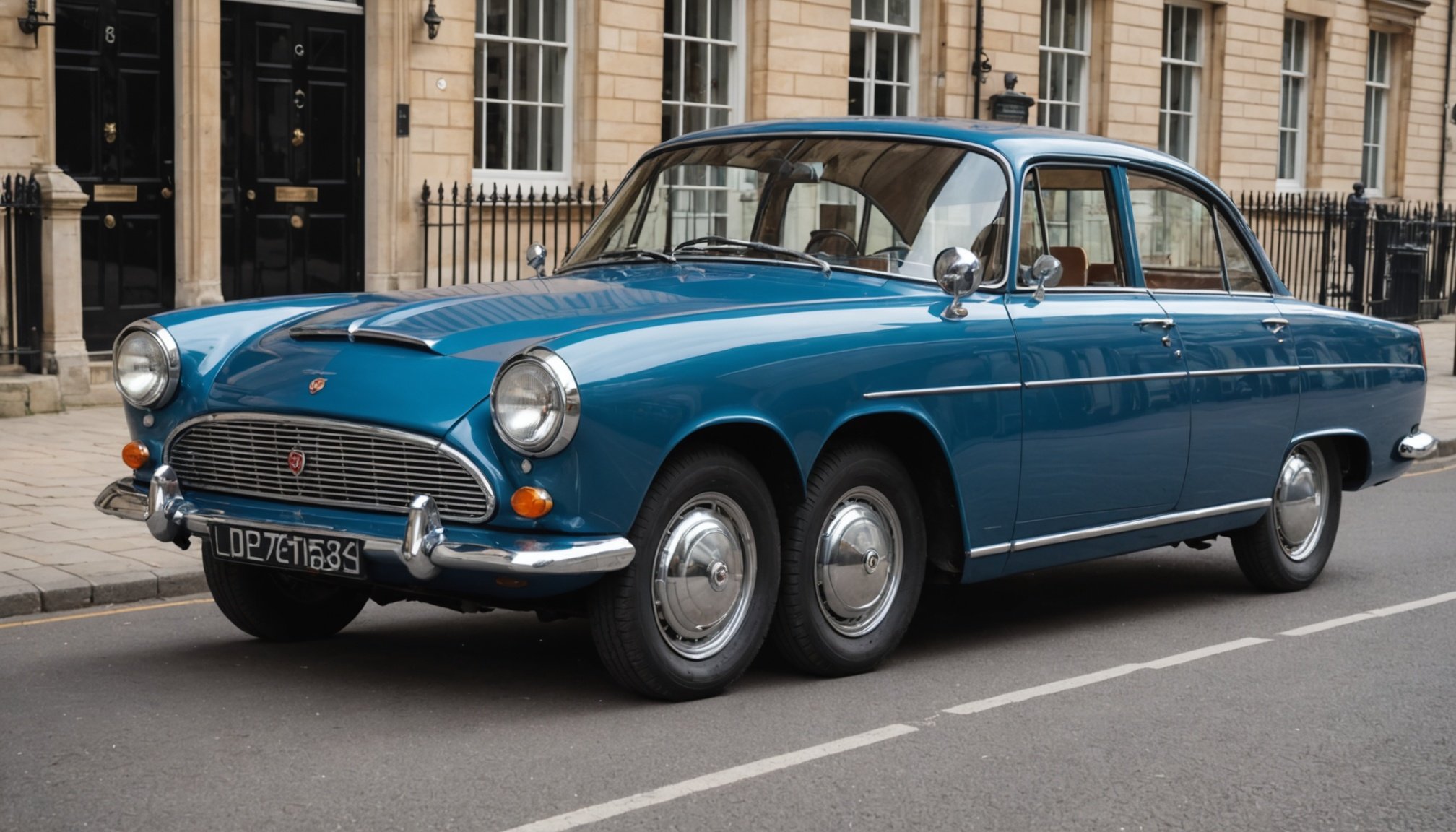As the world pivots towards sustainable solutions, there is an increasing buzz around electric vehicle conversions. For classic car enthusiasts, the idea of converting their beloved vehicles from petrol or diesel engines to electric power is an exciting prospect. But while it presents a unique blend of preserving the past and embracing the future, it also raises a few questions. Notably, what are the legal requirements for driving a converted electric classic car in the UK? In this comprehensive guide, we’ll delve into the intricacies of electric car conversions and the legal provisions that govern them.
The Conversion Process
Before diving into the legal aspects, it’s essential to understand what an electric car conversion entails. Converting a classic car into an electric vehicle involves replacing the petrol or diesel engine with an electric motor. The fuel tank is also removed and replaced with a battery pack that powers the electric motor.
Also to discover : What are the considerations for installing a hybrid system in an older car in the UK?
During the conversion, important components such as the drivetrain and transmission are usually preserved, ensuring that the classic car retains its original charm. The result is a vehicle with zero tailpipe emissions, quieter operation, and arguably, improved performance.
Conversions can be relatively expensive, with costs running into the tens of thousands. However, for many classic car enthusiasts, the benefits outweigh the initial outlay. Yet, once your classic car is converted, what are the legal implications?
Also read : Exciting automotive innovations: what's new in cars today
Registration with the DVLA
After converting your classic car to electric, one of the first legal requirements is to register the vehicle with the Driver and Vehicle Licensing Agency (DVLA). The DVLA needs to be informed about any significant changes to your vehicle, such as an engine conversion. In this case, you will need to change the fuel type on the V5C registration certificate (log book) of your vehicle to ‘electric’.
The process involves filling out the appropriate section of your log book with the new details and sending it to the DVLA. You should include evidence of the changes, such as receipts or invoices from the conversion company, and a letter explaining the alterations made.
Vehicle Emissions Standards
When it comes to emissions, converted electric cars are in a league of their own. Since there are no tailpipe emissions, they far surpass the most stringent emissions standards. However, there are still legal considerations to be made.
Under European law, which the UK adheres to for vehicle standards, a converted electric vehicle must comply with the “Type Approval” rules. These rules require that the emissions, safety and noise levels of the vehicle meet specific standards. For classic cars, this could mean additional changes to meet these standards, especially for safety and noise levels.
Insurance and Road Tax
Another significant consideration is insurance and road tax. After converting to an electric engine, your insurance company must be informed. The alterations could affect your insurance premium because the vehicle’s value, performance, and repair costs might change.
Regarding road tax, electric vehicles are generally exempt in the UK. However, this exemption only applies to vehicles that were initially registered as electric. For a converted electric vehicle, you may still be liable for road tax.
Technical Requirements
In terms of technical requirements, there are a few standards that a converted electric vehicle must meet. One of the most critical aspects is the battery pack.
The UK law states that the batteries used in an electric vehicle must be securely fixed and not likely to become loose or fall out. They should also be protected from likely impacts and not likely to rupture and cause a fire in the event of a collision.
Moreover, the vehicle’s electrical systems need to be designed and installed in such a way that they pose no danger to the occupants or other road users. This includes protection against electric shocks, especially in the event of a crash or during maintenance.
Safety Inspections
Lastly, the converted electric vehicle must pass safety inspections. The vehicle should be submitted for a Voluntary Individual Vehicle Approval (IVA) test. This test is designed to ensure that converted vehicles provide a standard of safety and environmental performance that is equivalent to that provided by a production vehicle.
The IVA test will verify several aspects, including the vehicle’s construction, the electric system’s safety, and the battery safety. Once the vehicle passes the IVA test, it is considered road legal and can be driven on UK roads.
In conclusion, converting your classic car into an electric vehicle is not just about making it environmentally friendly but also adhering to legal requirements set by the DVLA and other bodies. Done correctly, an electric conversion can breathe new life into your classic car, making it a joy to drive and a standout piece of sustainable engineering.
The Impact on Vehicle Performance and Efficiency
Understanding the impact of an electric conversion on a classic car’s performance and efficiency is crucial. The shift from petrol diesel to electric power results in a significant change in how the vehicle operates.
The electric motor installed during the conversion process has several advantages over a traditional combustion engine. Foremost, it delivers power instantly, resulting in quicker acceleration. Electric motors are also remarkable for their efficiency. Unlike petrol or diesel engines, which waste energy through heat, noise, and exhaust, electric motors convert nearly all the energy from the batteries to power the wheels.
The range of the converted electric vehicle will depend on the size and efficiency of the battery pack installed during the car conversion. Advanced lithium-ion batteries are often used in conversions, offering ranges comparable to many modern electric vehicles. However, battery technology is continually evolving, and future advancements may provide even greater ranges.
With regards to charging, a classic car converted to electric will require a home charging station or access to a public charging network. The charging speed will depend on the vehicle’s onboard charger, the power output of the charging station, and the battery’s capacity.
Cost Implications and Environmental Impact
The cost of converting a classic car to electric can be quite steep, with prices typically running into the tens of thousands of pounds. However, costs can vary widely depending upon the specific vehicle, the chosen conversion kit, and the desired performance specifications.
The upfront cost is, however, offset by lower operating costs. Electric cars are significantly cheaper to run than their petrol or diesel counterparts. They require less maintenance, have fewer moving parts to wear out, and the cost of electricity is generally lower than petrol or diesel fuel.
Beyond the financial considerations, there’s also the environmental impact to consider. By converting a classic car to an electric vehicle, you’re actively reducing your carbon footprint. Electric vehicles produce zero tailpipe emissions, which contributes to cleaner air and fewer greenhouse gas emissions.
Conclusion
In conclusion, while the journey of converting your classic car into an electric vehicle might seem daunting, it’s a worthwhile endeavour for both the environment and your driving experience. The conversion process transforms a gas-guzzling classic into a zero-emission vehicle that marries the charm of yesteryear with the technology of tomorrow.
Besides the technical aspects, there are legal requirements to meet, including vehicle registration, meeting emission standards, alterations to insurance and road tax, securing the battery pack, and passing safety inspections.
Sure, the process might be costly upfront, but it’s an investment that pays for itself in the long run. Moreover, you’re contributing to a more sustainable future, which is a priceless benefit. Indeed, electric car conversions are not only about preserving automotive history but also driving us towards a greener, more sustainable future.













